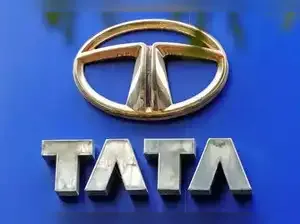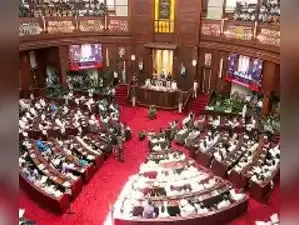Mumbai: The character of Tata Trusts will return to its erstwhile composition with the induction of senior group veterans who have served the group with distinction, alongside younger members of the Tata family, Vijay Singh, vice chairman of Tata Trusts, has said.
Singh, a former defence secretary, stepped down in September as a nominee director of the trusts on the board of Tata Sons (the group's holding company that is majority owned by the trusts) after a bloc of four trustees voted against his reappointment. His ouster exposed the differences among trustees, leading to months of jockeying, with union cabinet ministers stepping in to calm tensions. The friction has settled for the moment, with chairman Noel Tata consolidating control, but claimed the scalp of Mehli Mistry, who was not renewed as a trustee. He was seen as the architect of the move to oust Singh.
In his first public comments since the episode that drew widespread national attention, Singh said his ouster was "pre-planned", and rejected the argument that it was to effectively challenge the regulatory mandate to list Tata Sons.
"I cannot speak on Darius Khambata's intent, but the fact is that the listing question had already been comprehensively addressed," Singh said.
In a recent internal note to fellow trustees, Khambata had said his decision to support the proposal to nominate Mehli Mistry as a nominee on the Tata Sons board was to strengthen the collective voice of the Trusts in opposing the proposed listing of Tata Sons.
Singh said the months before his exit were marked by contentious Trust meetings dominated by demands for deeper visibility into Tata Sons' board agendas, minutes and internal matters.
"A trio of trustees had earlier sought to undo a governance balance that had held for decades, even though the same individuals had not raised a single issue relating to Tata Sons in the last two years of Ratan Tata's life," Singh said. "I don't know if Mehli Mistry and his colleagues wanted to control Tata Sons, but they certainly demanded information that had never before been shared with trustees."
Change of Tone
Singh added that the tone toward Tata Sons chairman Noel Tata changed sharply.
"Comments from a trustee that 'I made you chairman' or 'I will vote against you at the AGM' marked a clear break from past conduct," Singh said. "Noel showed remarkable forbearance and dignity despite this unacceptable behaviour."
He questioned the justification for the decision.
"Against this backdrop, the idea of 'strengthening the collective voice against listing' appears more like an afterthought-and in any case hardly grounds for removing a nominee director."
The Trusts had passed formal resolutions communicating their stance, he said. "On 8 July 2025, all trustees met the Tata Sons chairman for a long discussion where listing was the central point. The Tata Sons board itself had debated the issue over several meetings and authorised the chairman to make the company debt-free to avoid a listing."
His removal, he argued, stemmed from an effort by a faction of trustees to alter the long-standing arm's-length relationship between Tata Trusts and Tata Sons.
The governance landscape at the Trusts has shifted since the tumultuous September 11 meeting. Mehli Mistry's reappointment to the Sir Dorabji Tata Trust (SDTT) and the Sir Ratan Tata Trust was rejected by a majority at an October 28 meeting. The SDTT board has since inducted long-serving Tata executive Bhaskar Bhat and Neville Tata (Noel Tata's son), while also limiting Venu Srinivasan's erstwhile life term to three years in accordance with new state rules.
"Neville Tata can bring fresh energy to the Trusts' development work across healthcare, education and scientific research," Singh told ET. Tata Trusts, a grouping of philanthropic organisations, holds a 66% stake in Tata Sons, the holding company of the Tata Group.
Grim Humour
Singh also took exception to Khambata's claim that he should have attended the meeting so the trustees concerned-Khambata, Jehangir Jehangir, Pramit Jhaveri and Mehli Mistry-could "explain".
"But clearly, no honourable person would wish to place himself in such a position," he said.
He alleged that they had sought to push him out.
"The 11 September meeting was orchestrated to oust me," he said. "I had already offered to step down but was advised against it. The episode was well planned if not plotted."
The manner of his removal militated against the way Ratan Tata did things, he said.
"One should note the irony of my removal. I was appointed to the Tata Sons board by Ratan Tata in 2013 and reappointed in 2022. He even amended the Articles to remove the age cap so I could serve a full term. Yet less than a year after his passing, I was removed-not by him, but by Mehli Mistry and other trustees. There is a certain grim humour in what now passes for the post-Tata way."
Singh, a former defence secretary, stepped down in September as a nominee director of the trusts on the board of Tata Sons (the group's holding company that is majority owned by the trusts) after a bloc of four trustees voted against his reappointment. His ouster exposed the differences among trustees, leading to months of jockeying, with union cabinet ministers stepping in to calm tensions. The friction has settled for the moment, with chairman Noel Tata consolidating control, but claimed the scalp of Mehli Mistry, who was not renewed as a trustee. He was seen as the architect of the move to oust Singh.
In his first public comments since the episode that drew widespread national attention, Singh said his ouster was "pre-planned", and rejected the argument that it was to effectively challenge the regulatory mandate to list Tata Sons.
"I cannot speak on Darius Khambata's intent, but the fact is that the listing question had already been comprehensively addressed," Singh said.
In a recent internal note to fellow trustees, Khambata had said his decision to support the proposal to nominate Mehli Mistry as a nominee on the Tata Sons board was to strengthen the collective voice of the Trusts in opposing the proposed listing of Tata Sons.
Singh said the months before his exit were marked by contentious Trust meetings dominated by demands for deeper visibility into Tata Sons' board agendas, minutes and internal matters.
"A trio of trustees had earlier sought to undo a governance balance that had held for decades, even though the same individuals had not raised a single issue relating to Tata Sons in the last two years of Ratan Tata's life," Singh said. "I don't know if Mehli Mistry and his colleagues wanted to control Tata Sons, but they certainly demanded information that had never before been shared with trustees."
Change of Tone
Singh added that the tone toward Tata Sons chairman Noel Tata changed sharply.
"Comments from a trustee that 'I made you chairman' or 'I will vote against you at the AGM' marked a clear break from past conduct," Singh said. "Noel showed remarkable forbearance and dignity despite this unacceptable behaviour."
He questioned the justification for the decision.
"Against this backdrop, the idea of 'strengthening the collective voice against listing' appears more like an afterthought-and in any case hardly grounds for removing a nominee director."
The Trusts had passed formal resolutions communicating their stance, he said. "On 8 July 2025, all trustees met the Tata Sons chairman for a long discussion where listing was the central point. The Tata Sons board itself had debated the issue over several meetings and authorised the chairman to make the company debt-free to avoid a listing."
His removal, he argued, stemmed from an effort by a faction of trustees to alter the long-standing arm's-length relationship between Tata Trusts and Tata Sons.
The governance landscape at the Trusts has shifted since the tumultuous September 11 meeting. Mehli Mistry's reappointment to the Sir Dorabji Tata Trust (SDTT) and the Sir Ratan Tata Trust was rejected by a majority at an October 28 meeting. The SDTT board has since inducted long-serving Tata executive Bhaskar Bhat and Neville Tata (Noel Tata's son), while also limiting Venu Srinivasan's erstwhile life term to three years in accordance with new state rules.
"Neville Tata can bring fresh energy to the Trusts' development work across healthcare, education and scientific research," Singh told ET. Tata Trusts, a grouping of philanthropic organisations, holds a 66% stake in Tata Sons, the holding company of the Tata Group.
Grim Humour
Singh also took exception to Khambata's claim that he should have attended the meeting so the trustees concerned-Khambata, Jehangir Jehangir, Pramit Jhaveri and Mehli Mistry-could "explain".
"But clearly, no honourable person would wish to place himself in such a position," he said.
He alleged that they had sought to push him out.
"The 11 September meeting was orchestrated to oust me," he said. "I had already offered to step down but was advised against it. The episode was well planned if not plotted."
The manner of his removal militated against the way Ratan Tata did things, he said.
"One should note the irony of my removal. I was appointed to the Tata Sons board by Ratan Tata in 2013 and reappointed in 2022. He even amended the Articles to remove the age cap so I could serve a full term. Yet less than a year after his passing, I was removed-not by him, but by Mehli Mistry and other trustees. There is a certain grim humour in what now passes for the post-Tata way."








